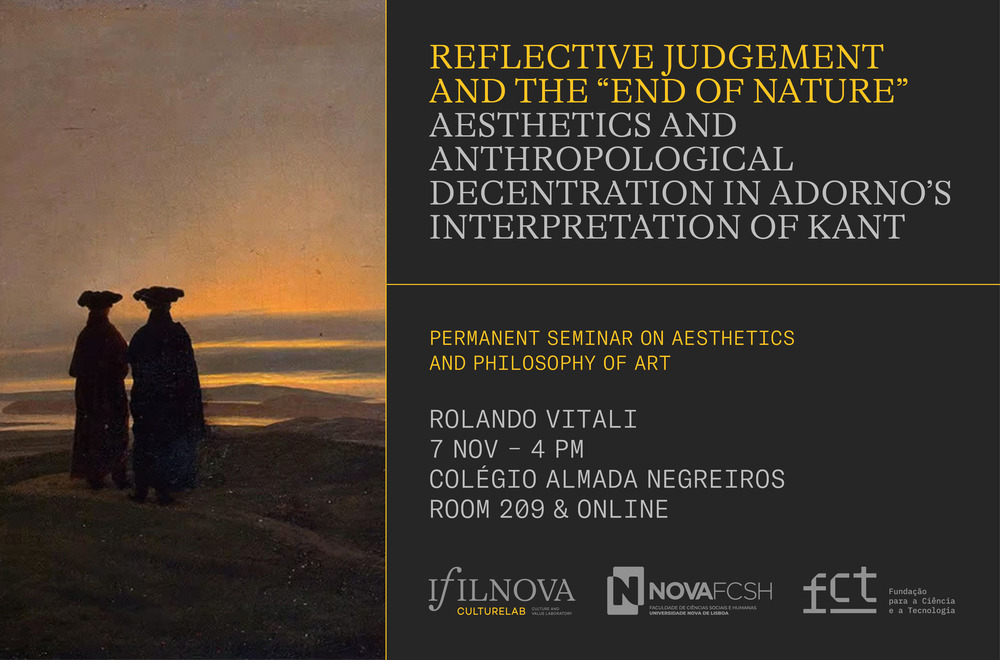Reflective judgement and the “end of nature”: Aesthetics and anthropological decentration in Adorno’s interpretation of Kant

Beginning with a brief reconstruction of the reflective character of teleological judgment, the intervention proposes the hypothesis for a possible rearticulation of some central problems of the environmental humanities and contemporary eco-critical environmental aesthetics. In particular, an attempt will be made to critically reflect on the claim, common to many of the current theoretical options, to overcome the modern notion of subjectivity — and, correlatively, of nature (see Morton) — in the direction of a non-anthropocentric and anti-dualistic approach. With respect to these positions, it will be shown how the Kantian recognition of a natural teleology, which the faculty of judgment cannot objectively prescribe to nature, but which it must rather give to itself as a principle in the understanding of “specifically different natures”, is assumed by Adorno to reaffirm, on the one hand, the non-resolution of nature within the concept but, on the other hand, also the non-aggirability of subjectivity in its theorization. On the basis of this Adornian interpretation of Kant’s legacy, an attempt will be made to clarify how any eco-critical rearticulation of the relationship between human and natural — or between epistemology and ontology — must move in the direction of a decentration of subjectivity that does not claim to revoke or overcome it tout court but, on the one hand, recognizes its role as a necessary condition for all knowledge and, on the other, reaffirms its reflexive and critical capacity with respect to its own conceptualization of nature and, therefore, with respect to its own being conditioned. On this background, aesthetics will prove to be a strategic discipline which is able to decentre the human: by questioning the nexus between subjectivity and sensibility, generality and particularity, it investigates precisely that moment of mediation between human and natural, between the self and the world, thus resulting strategic for questioning the forms and modes through which the human thinks of itself and locates itself within the natural world.
Bio
Rolando Vitali has studied philosophy at the Universities of Bologna and Berlin. His interests focus on German philosophy and culture, modern aesthetics and Frankfurt’s critical theory. He earned a doctorate degree at the Friedrich Schiller Universität in Jena, in partnership with the University of Bologna, with a thesis entitled Macht und Form — Individualität und ästhetische Kathegorien in der Philosophie Nietzsches (Königshausen & Neumann, 2022). He has been fellow in residence at the Nietzsche-Kolleg in Weimar, research fellow at the Istituto Italiano per gli Studi Filosofici (IISF) in Naples and in 2022 visiting researcher at the Akademie der Bildende Künste in Wien. He is currently conducting a research on Adorno’s aesthetic theory and the experience of nature at IFILNOVA (NOVA University Lisbon).
Para participar na sessão via Zoom, use este link.

